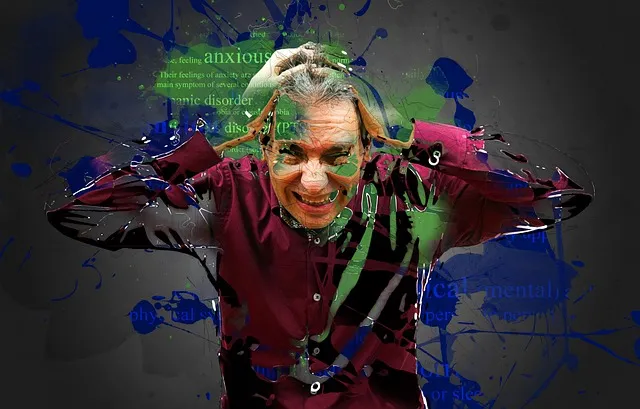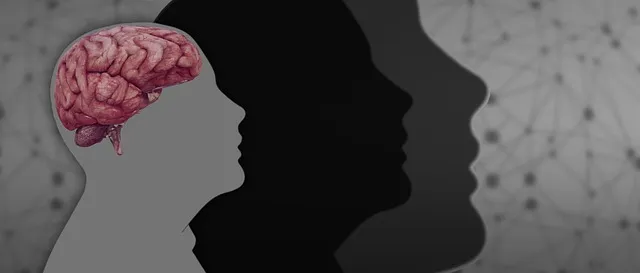Loss, grief, and bereavement are complex emotional processes that vary among individuals after a loved one's death. For those considering mental health careers with organizations like Kaiser Permanente, specializing in holistic patient care, understanding these stages is key. Kaiser Permanente mental health jobs provide vital support through counseling services using evidence-based practices to cultivate resilience and self-care routines. Early intervention and professional help from Kaiser Permanente mental health jobs Superior are crucial for managing prolonged sadness or loneliness after loss. Therapeutic approaches, empathy building, mood management techniques, and public awareness campaigns destigmatizing mental health issues further aid in healing. Prioritizing self-care ensures healthcare providers can effectively assist others.
“Navigating loss, grief, and bereavement can be a challenging journey, often leaving individuals seeking support. This comprehensive guide explores the crucial role of counseling in helping people manage these difficult experiences. We delve into the various aspects of understanding loss, from recognizing signs of profound grief to identifying when professional help is essential.
The article highlights Kaiser Permanente mental health jobs’ perspective on therapeutic approaches, offering a range of effective techniques for superior emotional support. It guides readers through finding resources and professionals, emphasizing that healing is accessible with the right tools and expertise.”
- Understanding Loss, Grief, and Bereavement: A Comprehensive Overview
- The Role of Counseling in Navigating Difficult Times (Kaiser Permanente mental health jobs perspective)
- Identifying Signs and Symptoms: Recognizing When Help is Needed
- Therapeutic Approaches: Effective Techniques for Superior Support
- Finding Resources and Professional Help: Your Journey to Healing
Understanding Loss, Grief, and Bereavement: A Comprehensive Overview

Loss, grief, and bereavement are complex emotions that impact individuals differently after the death of a loved one. Understanding these concepts is crucial for anyone considering mental health careers, especially within organizations like Kaiser Permanente that prioritize holistic patient care. Loss refers to the absence or deprivation of someone or something valued, while grief is the emotional response to that loss. Bereavement, on the other hand, is the period after a loss during which individuals process and adjust to their new reality.
At a fundamental level, these stages are about coming to terms with a profound change in life circumstances. The journey through grief involves a range of emotions—sorrow, anger, guilt, and even relief—and each person’s experience is unique. Superior mental health guidance for those navigating loss often involves a combination of professional support and self-care practices such as positive thinking, journaling exercises, and seeking guidance from advocacy groups that promote mental wellness. Through evidence-based approaches, professionals can help individuals cultivate resilience and adapt to their lives post-bereavement.
The Role of Counseling in Navigating Difficult Times (Kaiser Permanente mental health jobs perspective)

In difficult times, such as during loss, grief, and bereavement, Kaiser Permanente mental health jobs play a crucial role in providing essential support. Counseling offers a safe space for individuals to process their emotions, memories, and feelings of loss. Through evidence-based practices, therapists help clients navigate the complexities of grief, fostering resilience and coping mechanisms. The role of counseling extends beyond mere problem-solving; it’s about empowering individuals to heal and find meaning in their experiences.
At Kaiser Permanente mental health jobs, professionals utilize techniques like mindfulness meditation and encourage the development of a self-care routine for better mental health. By enhancing emotional intelligence, counselors assist clients in understanding and managing their emotions effectively. This holistic approach ensures that individuals not only cope with their loss but also emerge with improved emotional well-being and a renewed sense of purpose.
Identifying Signs and Symptoms: Recognizing When Help is Needed

Loss, grief, and bereavement can profoundly impact an individual’s mental well-being, making it crucial to recognize when professional help is necessary. The signs and symptoms of intense emotional distress following a significant loss vary from person to person, but certain indicators may suggest the need for counseling. Prolonged feelings of deep sadness, hopelessness, or loneliness are common; these emotions can be so overwhelming that they interfere with daily functioning, leading individuals to withdraw from their usual activities, relationships, and responsibilities.
At Kaiser Permanente mental health jobs Superior, we emphasize the importance of early intervention. If you or someone close to you is experiencing persistent difficulty coping after a loss, it’s essential to seek support. Professionals trained in grief counseling can help individuals develop effective strategies for emotional regulation, such as mindfulness meditation techniques, which promote resilience building and healthy coping mechanisms. By addressing these needs, individuals can navigate the complex journey of grief and bereavement with greater ease and ultimately find a path toward healing.
Therapeutic Approaches: Effective Techniques for Superior Support

In addressing loss, grief, and bereavement, various therapeutic approaches offer superior support for those seeking Kaiser Permanente mental health jobs. One effective technique is empathy building strategies, where counselors actively listen and demonstrate profound understanding, fostering a safe space for individuals to express their emotions freely. This approach not only validates their feelings but also helps them begin the process of healing.
Another powerful method involves mood management techniques, such as cognitive-behavioral therapy (CBT), which aids in identifying and challenging negative thought patterns associated with loss. By teaching individuals coping mechanisms and adaptive behaviors, CBT empowers them to navigate emotional distress more effectively. Public awareness campaigns focused on destigmatizing mental health issues play a crucial role in encouraging people to seek counseling, ultimately enhancing overall well-being within the community.
Finding Resources and Professional Help: Your Journey to Healing

Navigating loss, grief, and bereavement can be a challenging and often isolating experience. However, finding resources and professional help is a crucial step on your journey to healing. Many organizations, including Kaiser Permanente, offer mental health jobs focused specifically on providing support for these sensitive issues. These professionals are trained in compassion cultivation practices, which involve fostering empathy and understanding to create a safe space for individuals to process their emotions.
When seeking help, it’s important to remember that your well-being is paramount. Healthcare providers must also prioritize self-care and employ burnout prevention strategies to ensure they can effectively support others. The Risk Assessment for Mental Health Professionals is a valuable tool that helps identify potential hazards and promotes interventions to mitigate risks, ensuring the best possible care for both the provider and their clients.
Loss, grief, and bereavement counseling are essential components in helping individuals navigate difficult times, as highlighted by professionals at Kaiser Permanente mental health jobs. Understanding these complex emotions and utilizing effective therapeutic approaches, such as those discussed here, can foster healing and growth. If you or someone you know is experiencing signs of loss, remember that seeking professional help is a testament to strength and self-care. With the right support, it’s possible to find solace and move forward with resilience, achieving superior mental well-being.






